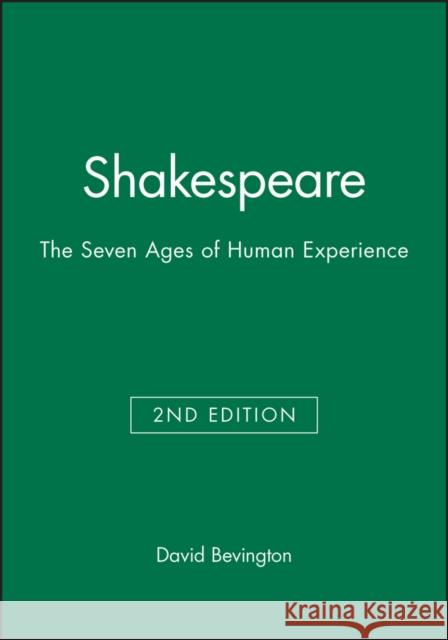Shakespeare: The Seven Ages of Human Experience » książka
topmenu
Shakespeare: The Seven Ages of Human Experience
ISBN-13: 9781405127530 / Angielski / Miękka / 2005 / 278 str.
The extended second edition of this inspiring introduction to Shakespeare offers readers more insights into what makes Shakespeare great, and why we still read and perform his works.
- A highly innovative introduction to the extraordinary phenomenon of Shakespeare
- Explores Shakespeares works through the -Seven Ages of Man-, from childhood to -second childishness and mere oblivion-
- Now includes more material on fathers and sons, the perils of courtship, the circumstances of Shakespeares own life, the performance history of his plays on stage and on screen, and more
- A new final chapter on -Shakespeare Today- looks at the remarkable diversity of interpretations in modern criticism and performance of Shakespeare
- Discusses a wide range of plays and poems
- Suitable for both non-specialist readers, and scholars seeking a fresh approach to the study of Shakespeare











